


This article offers practical tips for seniors who wish to embrace a heart-healthy diet, focusing on simple dietary changes that can significantly enhance cardiovascular health. It gently introduces the idea of making small adjustments to one’s diet, reassuring readers that these changes can lead to a healthier lifestyle. The recommendations include:
These tips are specifically tailored to meet the unique nutritional needs of older adults.
In addition to these suggestions, it’s important to remember that every small step counts. By incorporating more nutritious foods into daily meals, seniors can make a positive impact on their heart health. Furthermore, these dietary choices not only nourish the body but also contribute to overall well-being, fostering a sense of vitality and joy in life.
If you or a loved one have concerns about heart health, consider discussing these dietary changes with a healthcare professional. Together, you can create a personalized plan that feels manageable and supportive. Remember, you are not alone on this journey; there are resources and people ready to help you every step of the way.
Aging brings unique health challenges, particularly regarding the heart. For seniors, embracing a heart-healthy diet can truly transform their lives, helping to prevent cardiovascular issues and enhance overall well-being. In this article, we will explore ten practical tips that not only simplify dietary changes but also empower older adults to take charge of their heart health.
Together, let's navigate these questions and discover a path toward a healthier heart.
At Amavita Heart and Vascular Health®, we are dedicated to providing personalized cardiovascular care, especially for our senior patients. We understand that navigating health concerns can be daunting, which is why we emphasize advanced therapies such as:
All delivered with compassionate service. We believe that following a healthy heart diet plays a crucial role in your overall cardiovascular wellness, and we are here to support you in this journey.
Recognizing the unique needs of elderly patients, we incorporate a healthy heart diet into our nutritional guidance and treatment strategies. This ensures that you receive the tailored support necessary to maintain optimal cardiovascular health. We want you to feel confident that you are not alone; our team is here to guide you every step of the way.
Furthermore, Amavita is committed to pioneering research, offering access to clinical trials that advance cardiovascular care. This dedication not only enhances our services but also reinforces our mission to improve the quality of life for all our patients. We invite you to reach out and discover how we can together.
Including a varied selection of fruits and vegetables in everyday meals is essential for improving nutrient consumption, especially for older adults. Have you considered aiming for at least five servings each day? Prioritizing colorful options such as berries, leafy greens, and citrus fruits can make a significant difference. These foods are rich in vitamins, minerals, and antioxidants, making them an important part of a , as they play a crucial role in reducing inflammation and enhancing cardiovascular well-being.
Recent studies indicate that only 12.9% of older adults meet the recommended intake levels. This underscores the need for effective dietary interventions. Factors such as having three or more medical appointments in the past year significantly increase the likelihood of meeting these recommendations (OR = 1.88). Additionally, older individuals aged 80 years or older also show a higher likelihood (OR = 1.66).
Simple, easy-to-prepare options like smoothies or vegetable soups can significantly boost fruit and vegetable consumption, making it more manageable for seniors. Nutritionists support these strategies, highlighting that increasing fruit and vegetable consumption can lead to better wellness outcomes, including improved management of chronic conditions and enhanced overall well-being.
However, barriers such as low quality and variety of products, high costs, and lack of habit can hinder consumption. It’s important for older adults to establish a daily target for fruit and vegetable portions. Discussing dietary modifications with healthcare professionals can further enhance cardiovascular well-being by adopting a healthy heart diet. Remember, you are not alone in this journey; support is available to help you thrive.
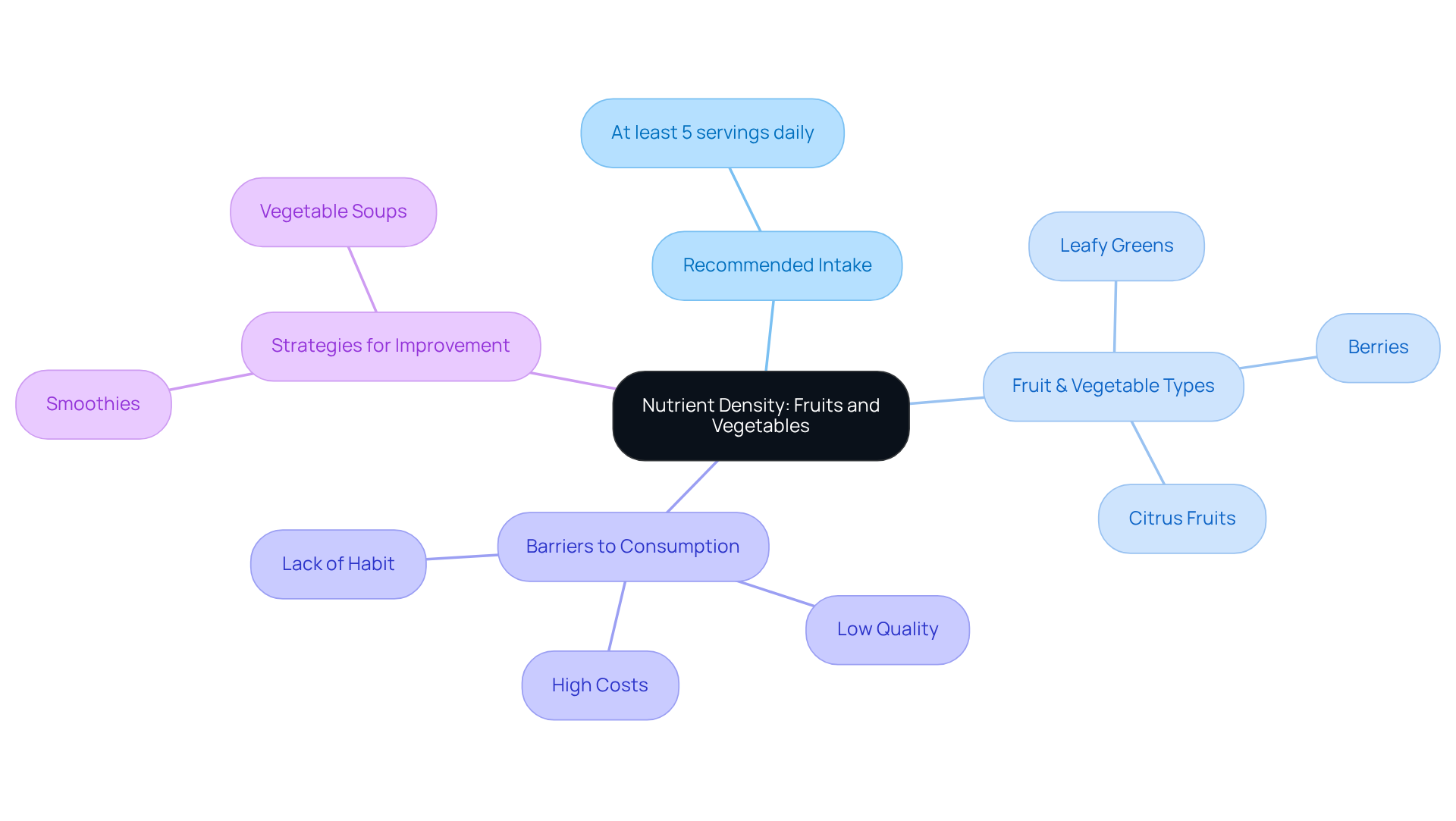
Choosing healthy fats, such as those found in avocados, nuts, and olive oil, is essential. These fats can help lower LDL cholesterol and reduce the risk of cardiovascular disease, which is particularly important for high-risk individuals like those with diabetes or hypertension. Have you considered snacking on a handful of nuts or using olive oil in your salad dressings? Small changes like these can significantly benefit your heart health.
At Amavita Heart and Vascular Wellness, we understand the importance of a healthy heart diet as an essential part of our comprehensive care approach. We are committed to ensuring that seniors receive personalized dietary guidance that meets their unique cardiovascular needs. Remember, while it's important to be mindful of portion sizes since fats are calorie-dense, the benefits of healthy fats far outweigh the risks when enjoyed in moderation. We are here to to a healthy heart diet.
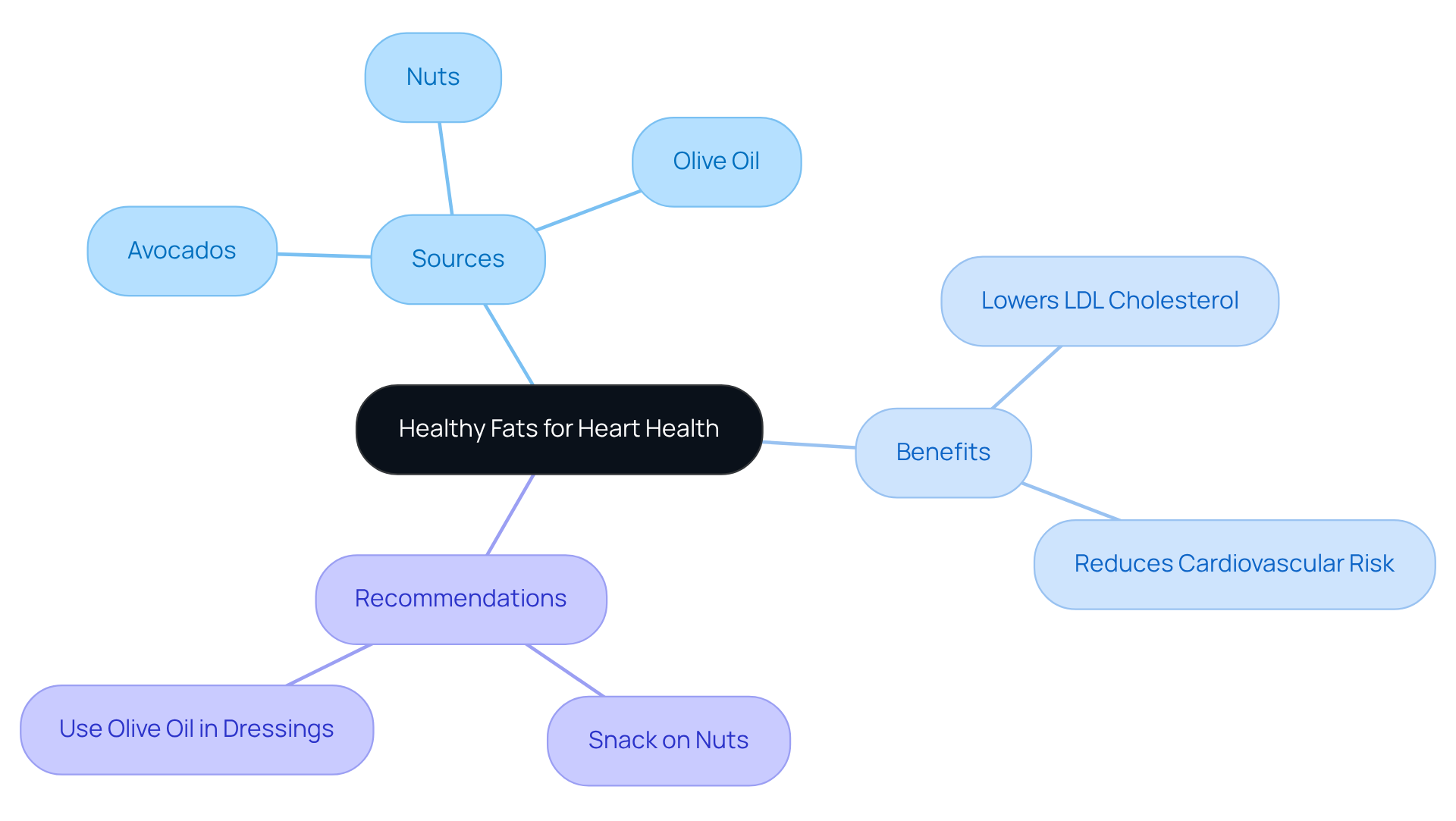
Maintaining a healthy heart diet by reducing the intake of processed foods is vital, especially for our beloved seniors. These foods often contain , which can lead to hypertension and weight gain. By focusing on a healthy heart diet that emphasizes whole, unprocessed foods whenever possible, seniors can take a significant step towards better health.
Have you ever looked at a food label and wondered what hidden sugars or sodium might be lurking inside? Reading labels can truly assist in making healthier choices.
Furthermore, preparing meals from scratch not only allows for control over these ingredients but also supports a healthy heart diet, bringing a sense of accomplishment and joy in nurturing one’s health.
Remember, every small change can make a big difference in your journey towards wellness.

Whole grains, such as brown rice, quinoa, and oats, are wonderful alternatives to refined grains in your diet. These nutritious grains are packed with fiber, making them an excellent choice for a healthy heart diet as they can help lower cholesterol levels and improve your heart health. Additionally, fiber plays a crucial role in digestion, making it especially beneficial for older adults.
You might find that into your meals is easier than you think—consider choosing whole grain bread or adding oats to your breakfast. Remember, small changes can lead to significant improvements in your overall well-being.
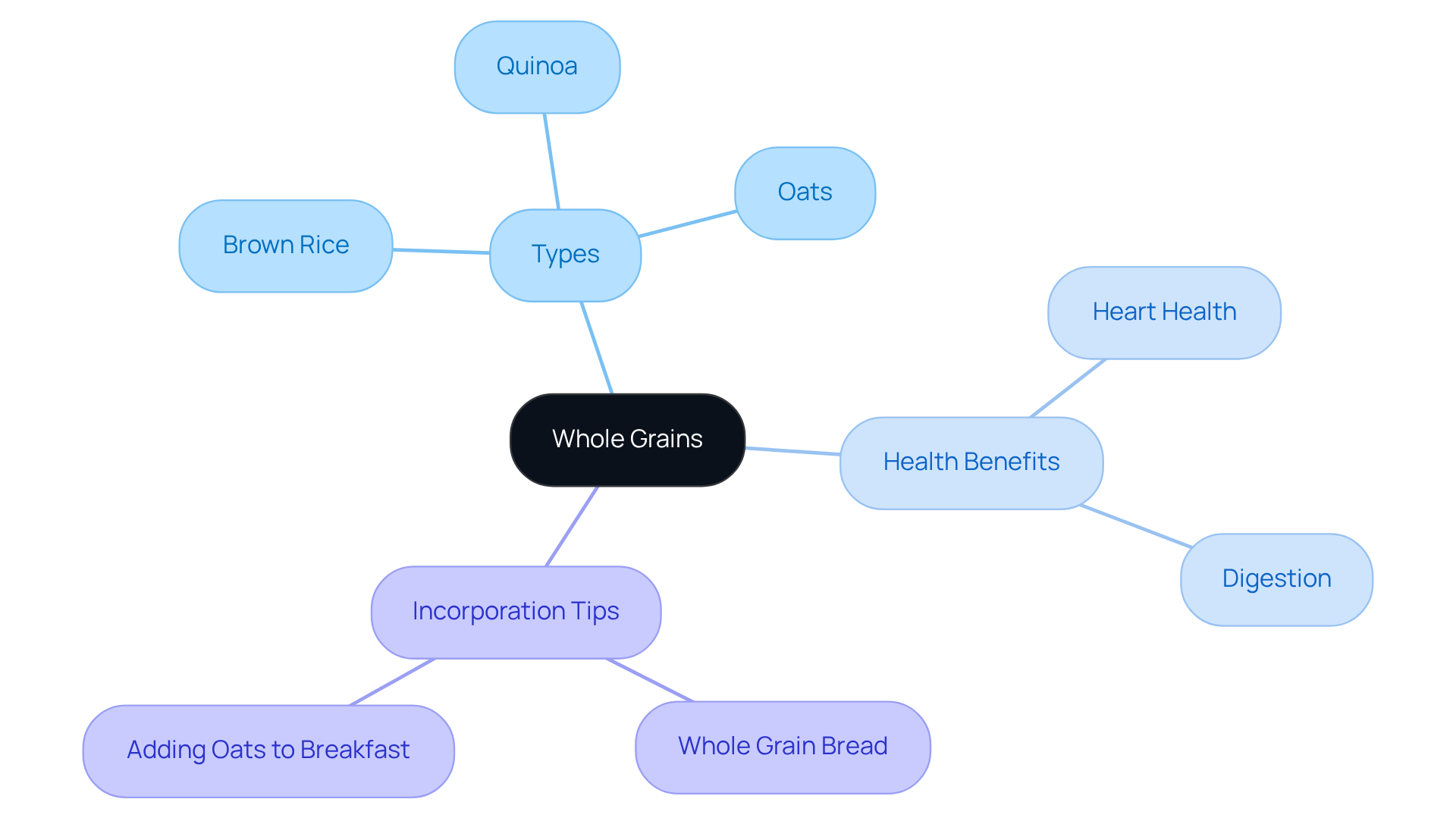
Practicing portion control is a valuable step for seniors looking to manage their weight and adhere to a to reduce the risk of cardiovascular disease. Have you ever noticed how paying attention to your hunger cues and serving sizes can make a difference? Mindful eating encourages this awareness, helping you to feel more in tune with your body.
Utilizing smaller plates and bowls can be a simple yet effective way to manage portions, making it easier to prevent overeating.
Furthermore, taking the time to savor each bite not only enhances your eating experience but also promotes satisfaction with smaller amounts of food. Remember, it’s about enjoying your meals and feeling good about what you eat.
By embracing these practices, you can take positive steps towards a healthier lifestyle, and know that support is always available as you navigate these changes.
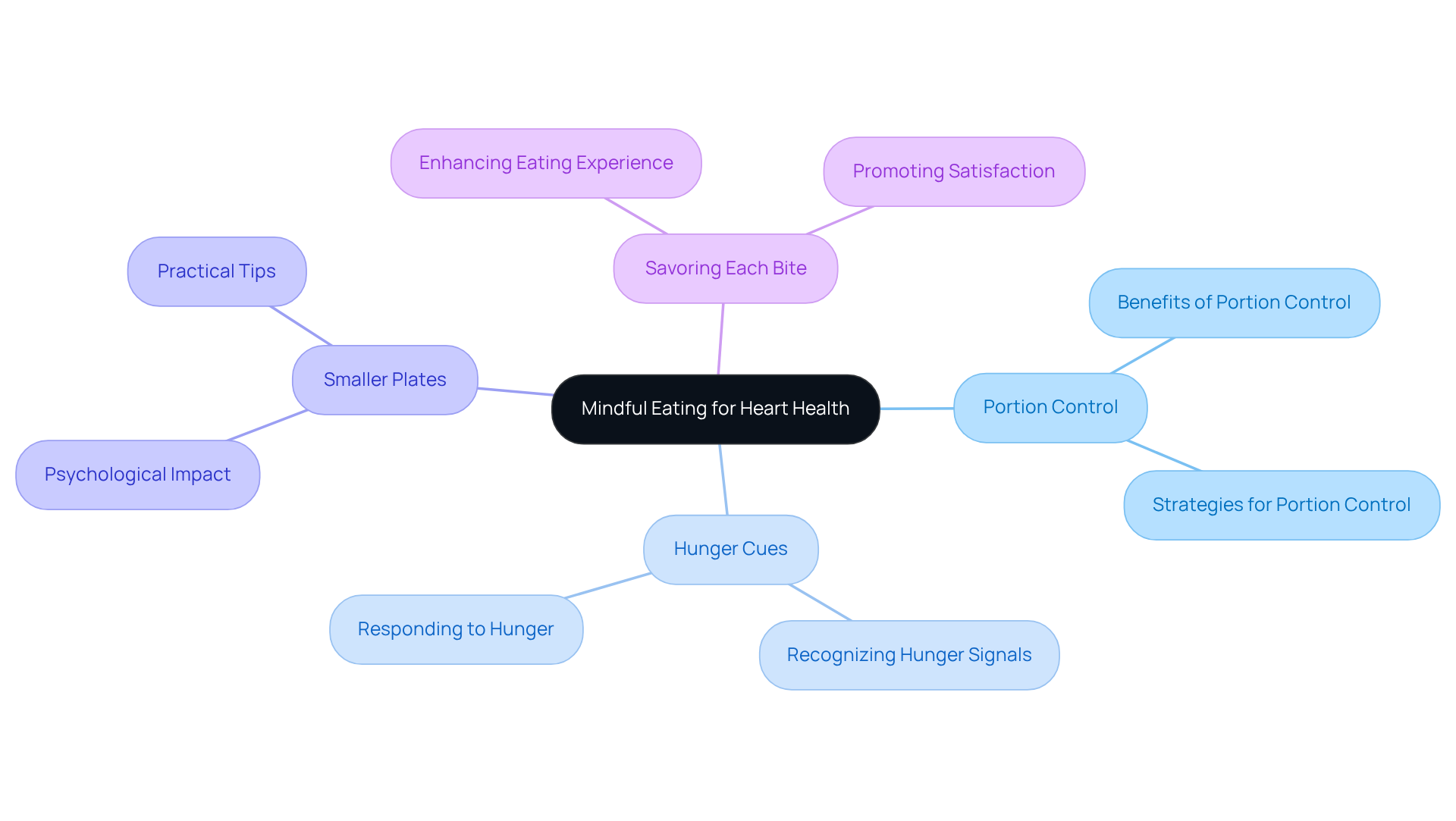
Incorporating fatty fish, such as salmon, mackerel, and sardines, into your diet can be a wonderful way to supply vital omega-3 fatty acids. These essential fats are not just beneficial; they play a significant role in supporting your cardiovascular well-being within a healthy heart diet. By helping to decrease inflammation, they can minimize the risk of cardiovascular issues, which is crucial for maintaining a healthy heart diet that many of us are concerned about.
To truly reap these benefits, aim for at least two servings of fatty fish each week. If fish isn't your favorite, don't worry! Omega-3 supplements are an option worth considering, especially after a chat with your healthcare provider. Remember, your health journey is important, and seeking guidance can help you make the best choices for your well-being.
Taking small steps towards a healthy heart diet can make a difference. You are not alone in this, and there are many to support you. Embrace these changes with confidence, knowing that every effort counts towards a healthier you.

Staying hydrated is essential for your , especially for our seniors who might not always feel thirsty. Have you considered aiming for at least eight glasses of water each day? Remember, you can adjust this based on how active you are and the climate around you. Hydration plays a vital role in supporting your body’s functions, which is essential for maintaining a healthy heart diet. Additionally, incorporating hydrating foods like fruits and vegetables can be a delightful way to help meet your fluid needs. We care about your well-being and want to ensure you feel your best.
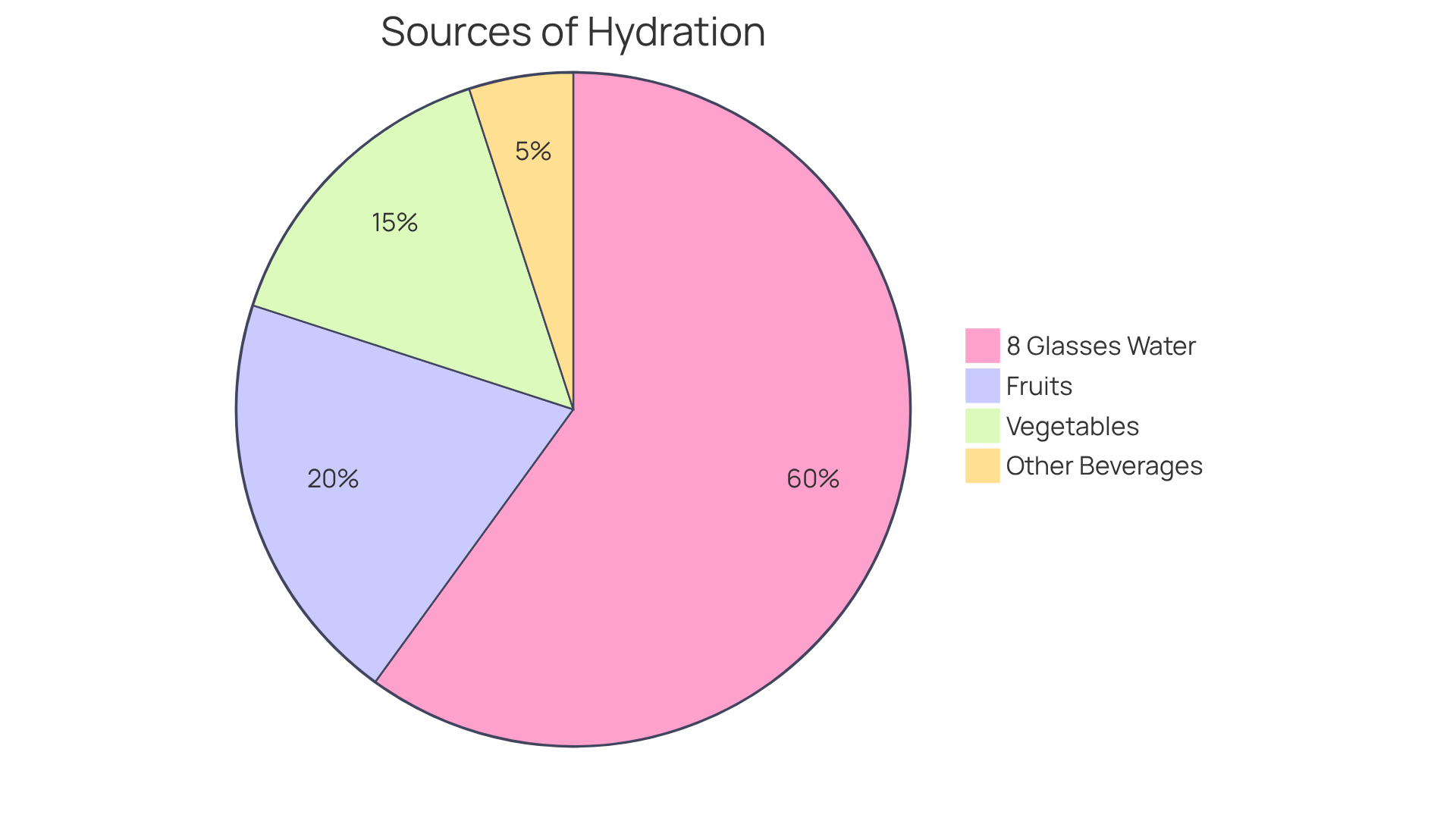
Preparing food at home can be a wonderful way for older adults to take charge of their meals, which can lead to healthier choices that support a healthy heart diet. Have you ever thought about how cooking from scratch can help you maintain a healthy heart diet by avoiding unhealthy additives and the excessive sodium often found in restaurant dishes?
Simple recipes that focus on whole foods can help create a , making the cooking process enjoyable and rewarding. In addition to this, engaging family members in meal preparation can strengthen social connections and transform cooking into a fun activity.
Remember, you are not alone in this journey; there are many ways to make cooking a delightful experience.
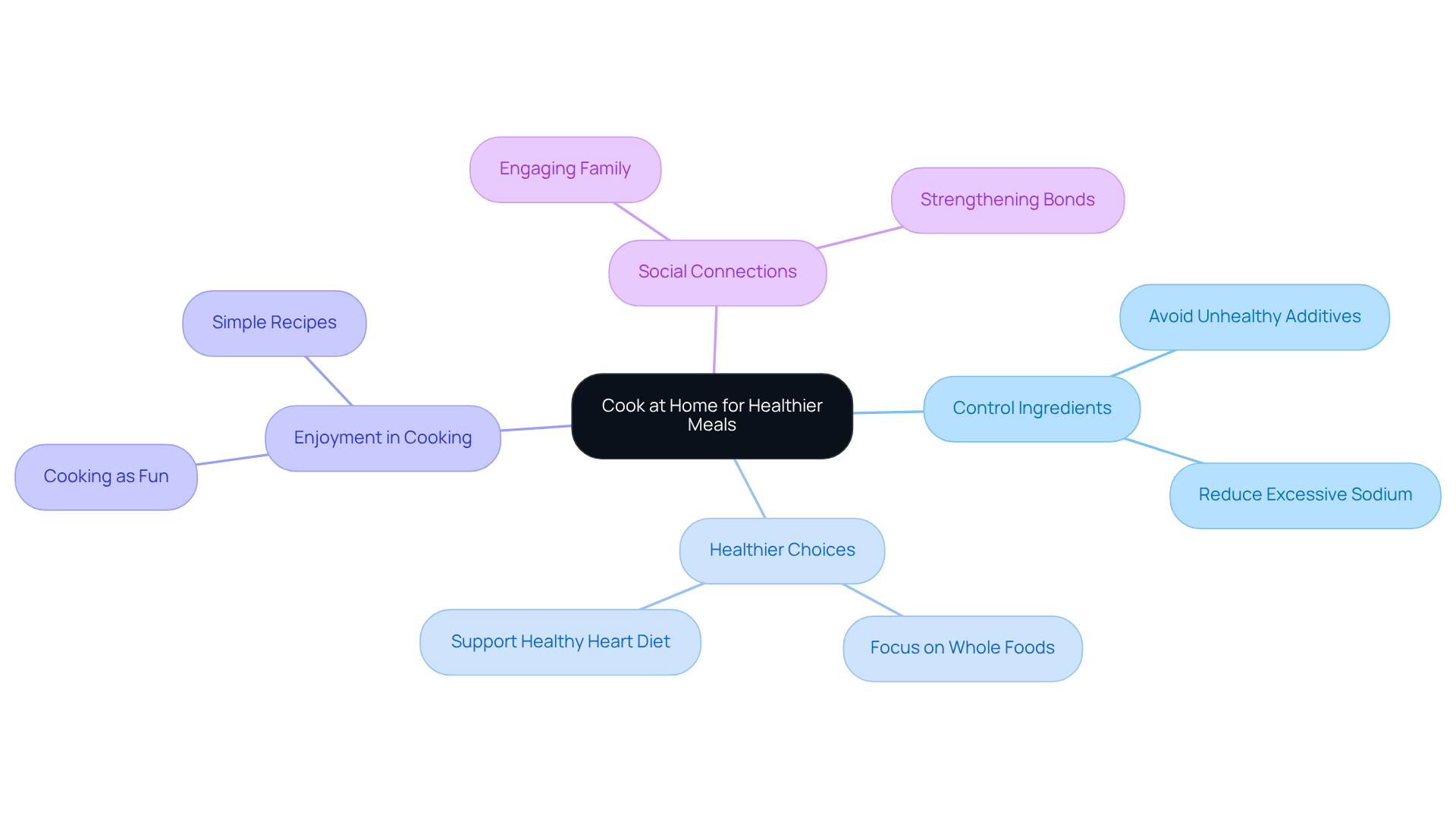
Engaging in regular exercise is vital for following a healthy heart diet, especially as we age. It's recommended to aim for at least 150 minutes of moderate-intensity activities each week, such as walking, swimming, or cycling. Engaging in physical activity not only helps maintain a healthy weight but also contributes to a healthy heart diet by lowering blood pressure and improving overall heart health.
Remember, fitness is a focused on self-improvement rather than competition, encouraging you to embrace your path toward better health. As Jillian Michaels beautifully puts it, "I’ve always believed fitness is an entry point to help you build that happier, healthier life," reminding us of the emotional and psychological benefits that come with staying active.
Neglecting exercise can lead to health issues, highlighting the importance of making physical activity a regular part of your life. Moreover, research indicates that consistent exercise sharpens mental clarity, contributing to your overall well-being.
Before starting any new exercise program, it's wise to consult with your healthcare provider to ensure it's safe and suitable for you.
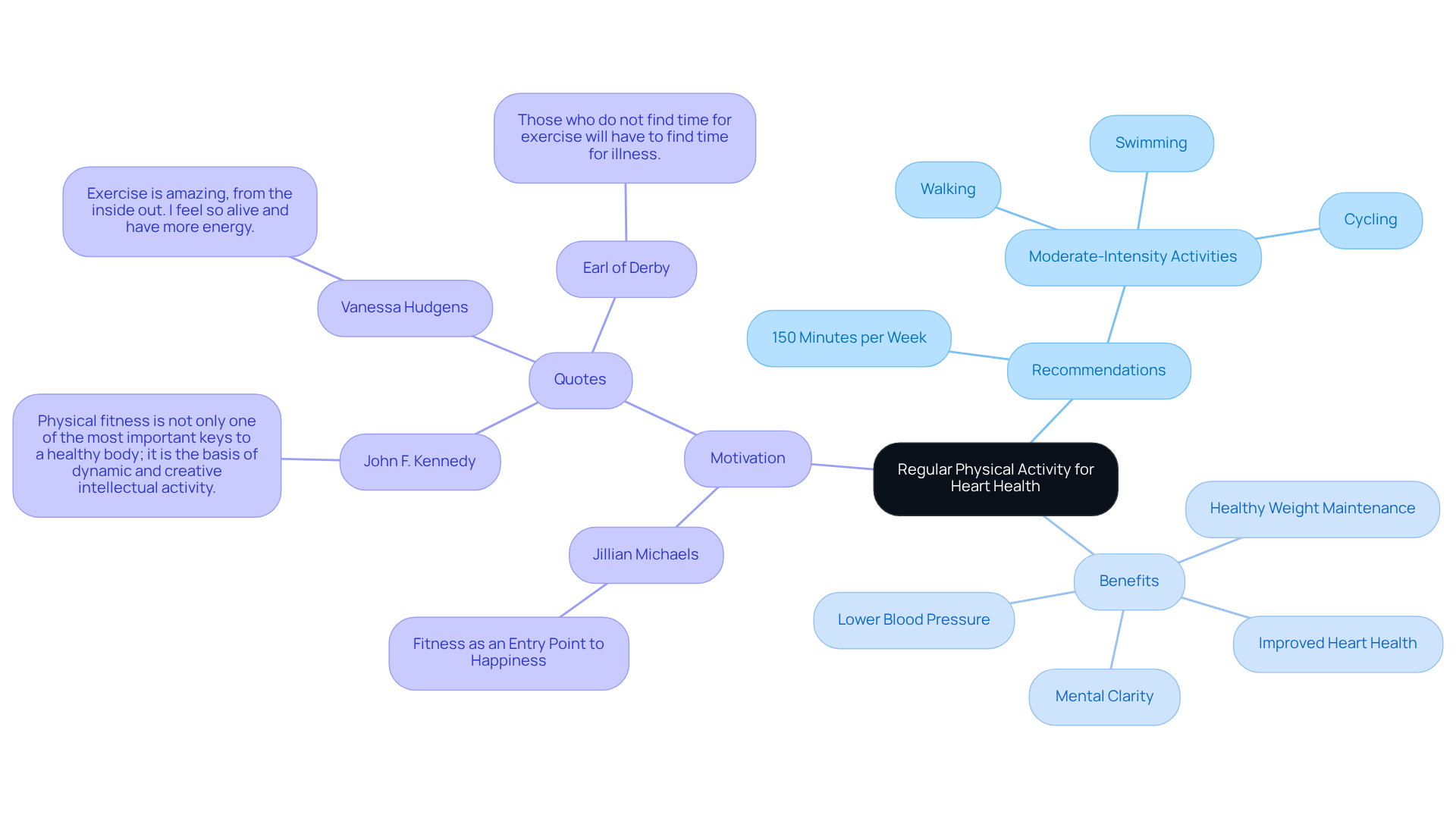
Embracing a heart-healthy diet is essential for seniors who wish to enhance their cardiovascular health and overall well-being. By making simple yet impactful dietary changes—such as increasing fruit and vegetable intake, choosing healthy fats, and practicing portion control—older adults can significantly reduce their risk of heart disease and improve their quality of life. Remember, this journey toward better heart health is not just about individual choices; it involves a supportive community and access to personalized care.
Throughout this article, we have highlighted key strategies that can make a difference, including:
Each of these elements contributes to a comprehensive approach to heart health, demonstrating that small, consistent changes can lead to substantial improvements in overall wellness. Furthermore, understanding the role of processed foods and the benefits of cooking at home can empower seniors to take control of their dietary habits, fostering a healthier lifestyle.
Ultimately, committing to a heart-healthy diet is a vital step toward enhancing longevity and vitality. We encourage seniors to seek guidance from healthcare professionals, connect with supportive communities, and embrace the resources available to them. Every effort counts, and by prioritizing heart health, you can enjoy a more fulfilling and active life. Remember, you are not alone on this journey; support is always within reach.
What services does Amavita Heart and Vascular Health offer?
Amavita Heart and Vascular Health offers personalized cardiovascular care, including advanced therapies such as cardiac catheterization and vascular procedures, all delivered with compassionate service.
How does Amavita support senior patients in maintaining cardiovascular health?
Amavita incorporates a healthy heart diet into their nutritional guidance and treatment strategies, recognizing the unique needs of elderly patients to ensure tailored support for optimal cardiovascular health.
What role does diet play in cardiovascular wellness according to Amavita?
A healthy heart diet is considered crucial for overall cardiovascular wellness, and Amavita emphasizes its importance in supporting patients' health journeys.
How can older adults improve their fruit and vegetable consumption?
Older adults are encouraged to aim for at least five servings of fruits and vegetables each day, prioritizing colorful options like berries, leafy greens, and citrus fruits, which are rich in essential nutrients.
What are some barriers to fruit and vegetable consumption among older adults?
Barriers include low quality and variety of products, high costs, and lack of established habits, which can hinder the consumption of fruits and vegetables.
What simple strategies can help seniors increase their fruit and vegetable intake?
Simple, easy-to-prepare options like smoothies or vegetable soups can help boost fruit and vegetable consumption for seniors.
Why are healthy fats important for cardiovascular health?
Healthy fats, such as those found in avocados, nuts, and olive oil, can help lower LDL cholesterol and reduce the risk of cardiovascular disease, especially for high-risk individuals.
How does Amavita assist patients in adopting a healthy heart diet?
Amavita provides personalized dietary guidance to seniors, helping them make informed choices about healthy fats and portion sizes as part of their comprehensive care approach.